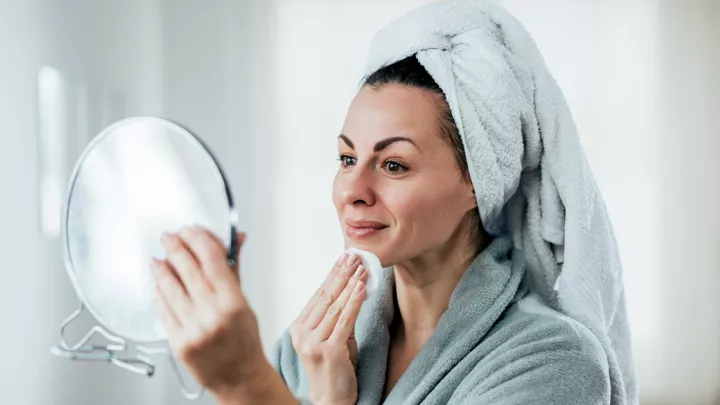How to take better care of your scalp

While we may pay attention to the skin on our arms, legs and face, we tend to forget about the skin on our scalp. Your scalp's overall health is as essential as the skin on the rest of your body.
What does your scalp say about your overall health?
“The scalp is unique skin because it’s hair-bearing, and compared to the skin on other parts of the body that may also be hair-bearing, certain conditions are different on the scalp,” says dermatologist Ronald Sulewski, MD. “Scalp health can sometimes reflect the health of the skin on your whole body, with systemic issues sometimes appearing first on the scalp.”
A severely itchy scalp, inflammation or tender skin may signal an underlying condition.
“Some of the most common conditions we see on the scalp that involve inflammation include mild to severe seborrheic dermatitis (dandruff), acne, eczema or painful follicle issues like folliculitis,” adds Dr. Sulewski.
How to take care of your scalp
Depending on your skin and hair type, dermatologists recommend a range of scalp and hair care routines and frequencies. People with oilier scalps may need to shampoo every day or two, while others with dry skin may opt to shampoo and condition once per week or two, even up to a month.
For people with a dry scalp
Experiment with how frequently you shampoo, and consider using a moisturizing shampoo and adding conditioner to your routine. If you experience dandruff, try a shampoo and conditioning regimen made for dandruff-prone skin. “If your skin gets beyond dry and you experience itching or skin lesions, you may need a prescription medication from a dermatologist to help,” says Dr. Sulewski.
For people with oily scalps
Try shampooing with more frequency and experiment with different brands to see what works for you.
For people with a skin condition or extra sensitive skin
Generally, treatment may include a medicated shampoo, leave-in topicals or sometimes medication. “My patients with psoriasis, for example, who have the condition on other parts of their body will need more systemic prescription medicine. If a condition is localized to the scalp, we start with a liquid or foam-based prescription steroid or recommend a medicated shampoo.”
If you try a medicated shampoo you buy at the store, massage it into the scalp and let it soak in for five to 10 minutes before rinsing out.
If you have a skin condition or sensitive skin, avoid products with ingredients that may trigger an allergic reaction. Even “organic” or “natural” products can cause problems on the scalp.
Read specific advice from a dermatologist about healthy hair care for Black women.
Protect your scalp from sun damage and skin cancer
While we may diligently apply sunscreen to our faces and other exposed body parts, it’s easy to forget about protecting the scalp. Dermatologists recommend wearing hats and using sunscreen sprays for the exposed or thinning areas on the scalp.
“While thinning or male pattern baldness is common in men, putting them at risk of chronic sun damage, precancers or skin cancer, it’s also more common in women than they may think,” says Dr. Sulewski. “Even if you have plenty of hair and think you’re protected, I see patients who think back about a previous burn on their part or thinning area. Skin cancer, like other cancers, can appear even if you don’t have that extra risk and show up on parts of the body that aren’t normally exposed to the sun.”
Are you concerned about hair loss? Learn more about what causes it in men and women and how to stop it.







